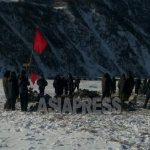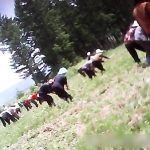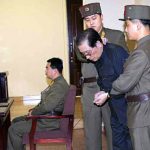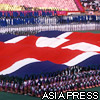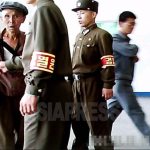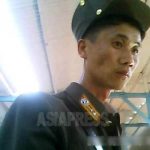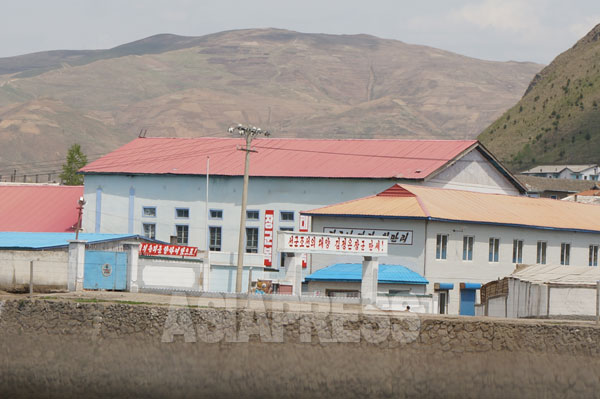
'Sotoji' refers to North Koreans' "illegal" private self-cultivation plot. Since the collapse of the public distribution system in the 1990s, these Sotoji have become more important than official rations or distributions for securing food. As part of Kim Jong-un's new agricultural reforms, the cultivation of these plots, which had previously continued despite periodic crackdowns, has been completely banned, causing anxiety among farm workers. (JEON Seong-jun / KANG Ji-won)
◆ Private Plots Fill the Gap of Reduced Distribution
Sotoji began during the "Arduous March" famine of the 1990s when farmers cleared mountainsides and wastelands to grow food for survival. Eventually, nearby urban residents also began cultivating these plots, and deforested mountains became covered with illegal private plots.
Let's examine some photos of these private plots:
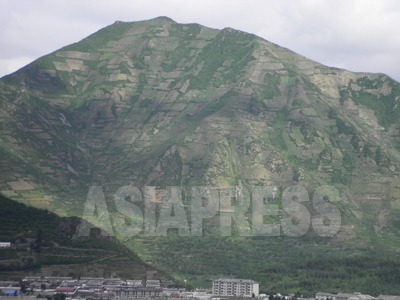
This photo taken from the Chinese side of the border in May 2010 shows North Hamgyong Province's Musan County. Small private plots can be seen dotting the mountains all the way to the summit, where not a single tree remains. The image reveals people’s determination to survive.
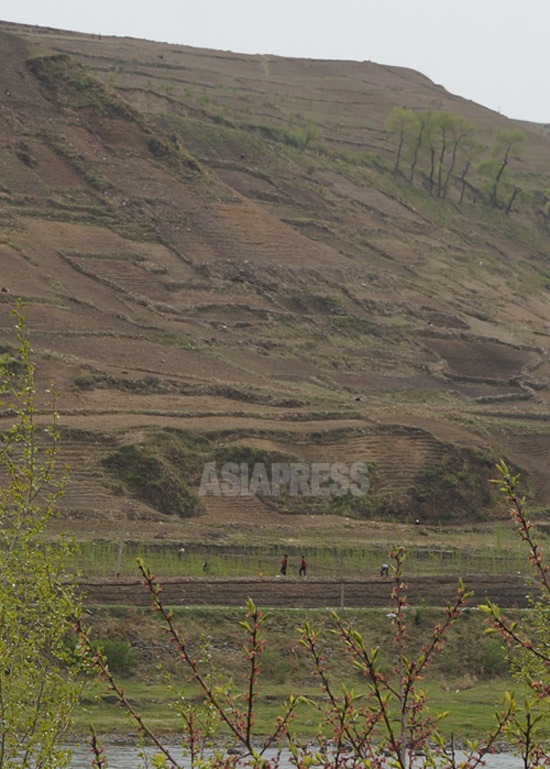
This photo from May 2014 shows the outskirts of Hyesan in Ryanggang Province, taken from the Chinese side of the border. Private plots are densely packed across the entire mountainside, leaving almost no empty space.
While no official statistics exist for these unofficial plots, they have become the primary means of food self-sufficiency for many households, producing more than what they receive through state rations or distributions. Some of this produce also flows into markets, helping stabilize food prices.
However, the unregulated clearing of land for these plots has contributed to deforestation, which has been identified as one cause of North Korea's frequent flooding problems.
Although cultivating private plots is technically illegal in North Korea, where most land is state-owned, authorities had previously turned a blind eye, recognizing that prohibiting them would immediately threaten people's livelihoods.
Since Kim Jong-un came to power, however, the regime has pursued policies to ban private plots and restore forests. Nevertheless, cultivation continued as people used connections or paid bribes to avoid enforcement.
◆ New Distribution Policy Bans Private Plots
With the introduction of new agricultural policies, government control over private plots appears to have intensified. Internal sources have reported on the ban since around 2021, but enforcement reportedly became much stricter last year.
A source from North Hamgyong Province (identified as "B") reported in May and July 2024:
"They've limited farm workers' private plots to 250 pyeong [approximately 826 square meters] per household and conducted a complete survey of private cultivation areas. They say they'll deduct from distributions an amount equivalent to whatever is produced on land exceeding 250 pyeong, making it difficult to secure additional food beyond the official distribution."
Source B also conveyed farmers' reactions, who inevitably rely more on their own plots than on unstable farm distributions:
"There's significant pushback from farm workers. Although authorities keep emphasizing the need to eradicate individualism, most people are still secretly cultivating private plots this year."
